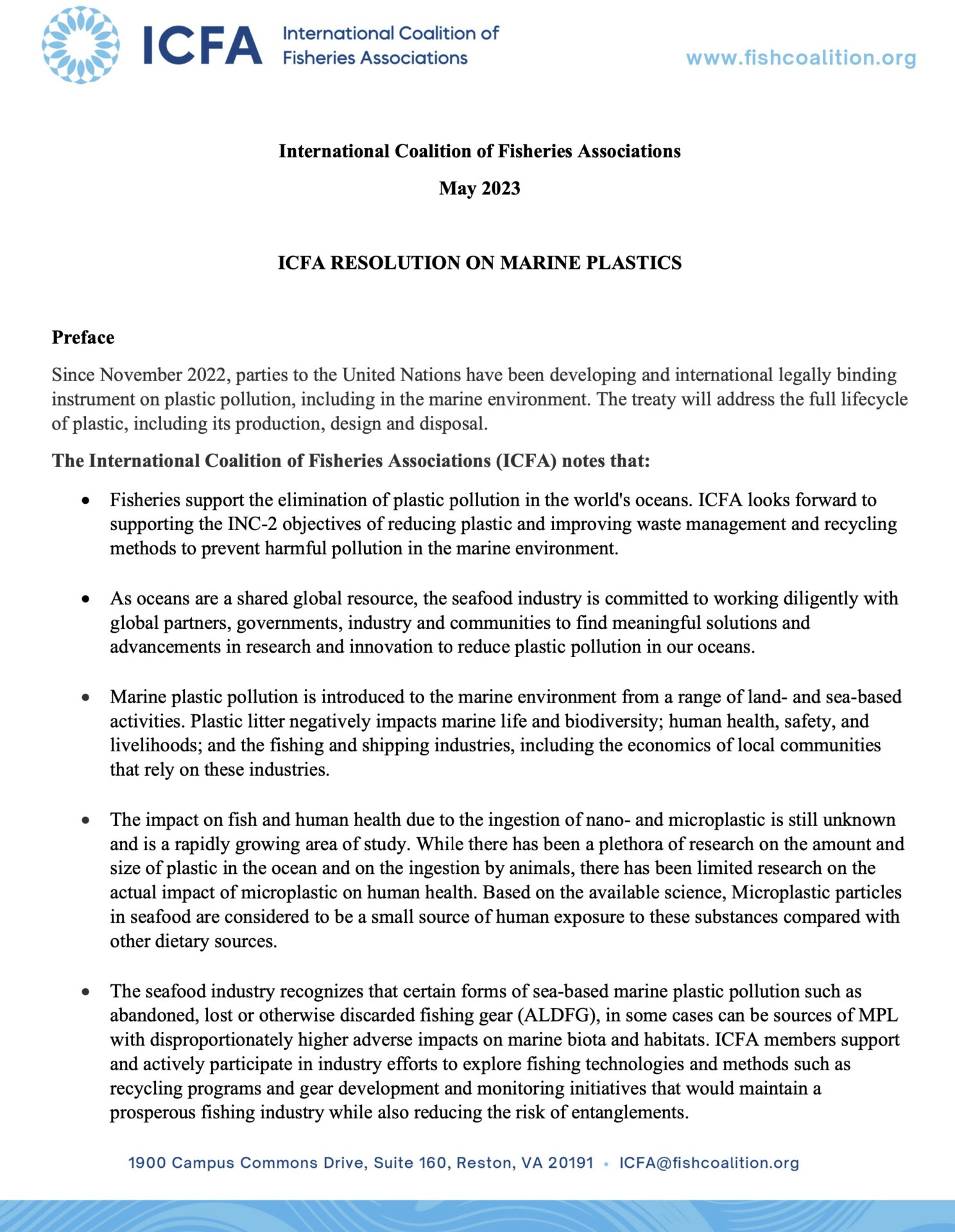ICFA is committed to working with global partners, governments, industry and communities to find meaningful solutions and advancements in research and innovation to reduce plastic pollution in our oceans. As oceans are a shared global resource, the seafood industry is committed to working with global partners, governments, industry and communities to find meaningful solutions and advancements in research and innovation to reduce plastic pollution in our oceans.
ICFA RESOLUTION ON MARINE PLASTICS
Preface
Since November 2022, parties to the United Nations have been developing and international legally binding instrument on plastic pollution, including in the marine environment. The treaty will address the full lifecycle of plastic, including its production, design and disposal.
The International Coalition of Fisheries Associations (ICFA) notes that:
- Fisheries support the elimination of plastic pollution in the world’s oceans. ICFA looks forward to supporting the INC-2 objectives of reducing plastic and improving waste management and recycling methods to prevent harmful pollution in the marine environment.
- As oceans are a shared global resource, the seafood industry is committed to working diligently with global partners, governments, industry and communities to find meaningful solutions and advancements in research and innovation to reduce plastic pollution in our oceans.
- Marine plastic pollution is introduced to the marine environment from a range of land- and sea-based activities. Plastic litter negatively impacts marine life and biodiversity; human health, safety, and livelihoods; and the fishing and shipping industries, including the economics of local communities that rely on these industries.
- The impact on fish and human health due to the ingestion of nano- and microplastic is still unknown and is a rapidly growing area of study. While there has been a plethora of research on the amount and size of plastic in the ocean and on the ingestion by animals, there has been limited research on the actual impact of microplastic on human health. Based on the available science, Microplastic particles in seafood are considered to be a small source of human exposure to these substances compared with other dietary sources.
- The seafood industry recognizes that certain forms of sea-based marine plastic pollution such as abandoned, lost or otherwise discarded fishing gear (ALDFG), in some cases can be sources of MPL with disproportionately higher adverse impacts on marine biota and habitats. ICFA members support and actively participate in industry efforts to explore fishing technologies and methods such as recycling programs and gear development and monitoring initiatives that would maintain a prosperous fishing industry while also reducing the risk of entanglements.
Therefore, ICFA calls for –
- An agreement that holistically addresss legitimate ocean plastic pollution issues on land and sea while also considering the linked goals of ensuring food security, food safety, nutrition and the social and economic sustainability of seafood systems.
- Adopting a multi-layered government approach to eradicating marine plastic pollution mutually reinforces individual, sub national, national and regional actions.
- The fishing industry and fisheries agencies are fully integrated into the decision-making process regarding potential marine pollution treaty core obligations and targets, control measures, action plans, and implementation measures.
